We want to give you an idea of the different parts that make up a metal roof. When you are trying to explain what you think is happening to your roof you will know what parts to refer to!
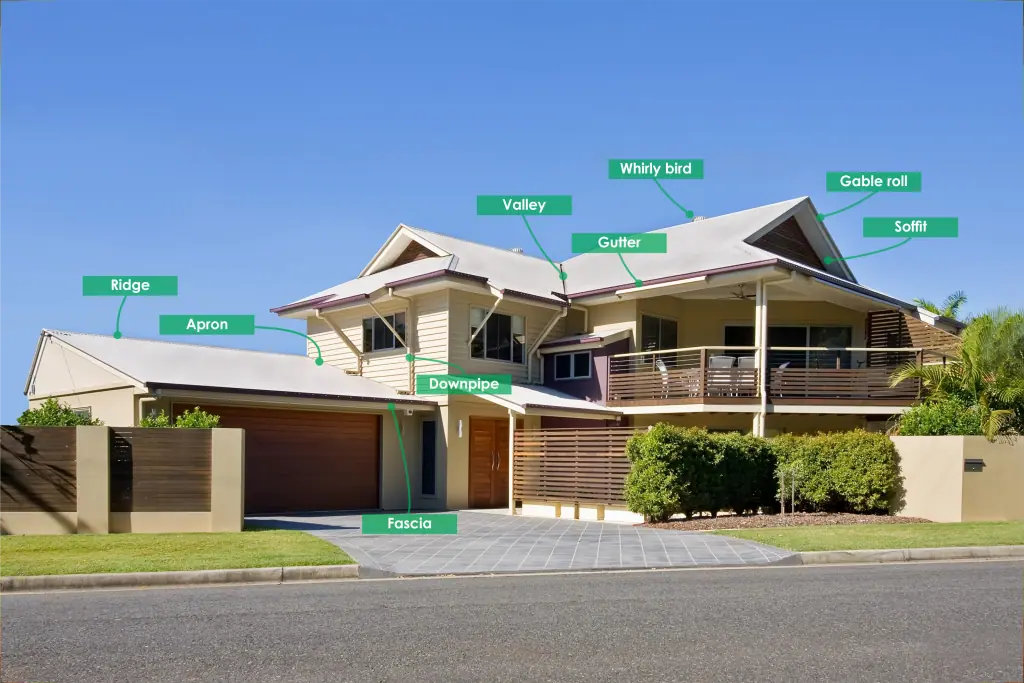
Common roofing terms explained.
Installed over the roof frame directly beneath metal roof sheeting, it consists of a glasswool blanket adhered to an impermeable reinforced reflective foil facing.
Metal flashing used where roof meets vertical faces such as walls, chimneys etc.
A flashing that is used to fix the gable end of the roof where the sheets start and finish.
A long strip of squared timber or rolled metal that roof sheets are screwed into.
A gutter that’s not at an eave. Typically at the base of two opposing roof faces or inside a parapet wall.
Base metal thickness.
Typically made from glasswool, polyester, or wool they are a type of bulk insulation that is designed to fit directly above the home’s ceiling between joists, rafters or studs.
Colorbond is the brand name of a coated steel product manufactured by Bluescope Steel. Colorbond steel is produced with a Zincalume base to provide corrosion resistance and then covered with a chemically applied conversion layer to enhance coating adhesion. On top of this goes a baked on epoxy primer and finally a baked on exterior grade top-coat
A pipe that carries rainwater from the roofs guttering to a drain or to ground level
The external ceiling between the fascia and the building’s outside wall.
A temporary safety rail system attached to the perimeter of the building to prevent falls from roofs of certain heights
A portion of the roofing area defined by having four separate edges. A single side of a gable or hipped roof
A timber board or rolled metal product of similar dimensions, fixed along the eaves to which gutter is secured
Materials used to waterproof a roof around any projections
Traditional roof style; two peaked roof planes meeting at a ridge line of equal size.
A shallow trough fixed under the edge of the roof made to assist in carrying off water
A roof with four roof planes coming together at a peak and four separate hip legs.
The area where rolled roofing or insulation overlap one another during installation
A wall on the perimeter of building that projects above the line of the eaves
The slope of the roof or gutter often expressed in degrees
Pooling of undrained water on a roof
A value given for the resistance to heat transfer of a roof or wall system
The horizontal angle on the outer part where two sloped roofs meet
A layer of flexible foil insulation typically installed under roof tiles when the roof is being installed
A single sloped roof, generally not attached to another roof.
A roof gutter pit used to connect downpipes to internal roof gutters
Fine filings or chips of metal that come off metal when cutting or drilling
When a roof plane ties into another roof plane that has a different pitch or slope.
Area where two adjoining sloped roof planes intersect on a roof creating a “V” shaped depression.
A decorative awning that covers the top of a window to protect from the weather
The brand name given to a coated steel product manufactured by Bluescope Steel. The steel is coated in Zinc/Aluminium alloy to increase its resistance to corrosion
Corrugated, galvanised iron sheets are the most common form of roof covering found in Queensland.
The number one reason that old galvanised roofs rust is constant moisture contact. This is usually from dirt and debris build up where short metal roof sheets have been lapped. Roof sheets are now bought in custom lengths which eliminate the issues associated with lapping sheets that exist on older roofs.
When ‘gal’ roofs are due for replacement there is no better option than to have a Bluescope Colorbond or Zincalume roof installed.
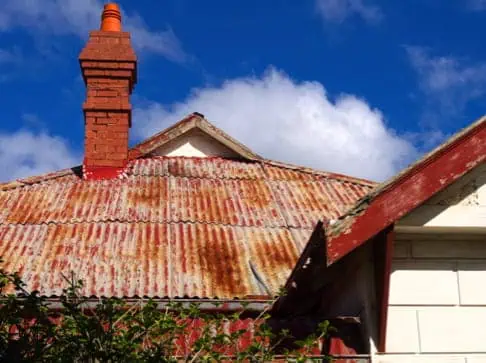
As possibly one of the most disliked roofing materials in existence, Decramastic roof tiles are pressed metal tile strips that were made to imitate concrete tiles. Produced from light gauge metal, it deforms very easily if walked on – often leading to roof leaks.
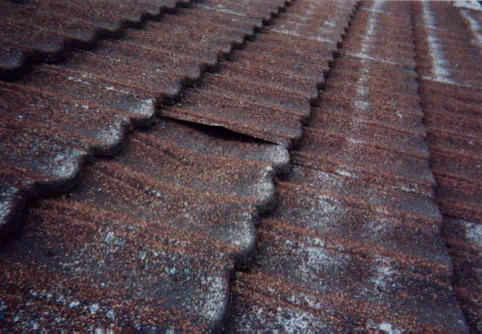
Also known as fibro, super six, asbestos cement or AC sheeting, the hazards of this once popular construction material is well documented.
To learn more about asbestos and it’s risks click here.
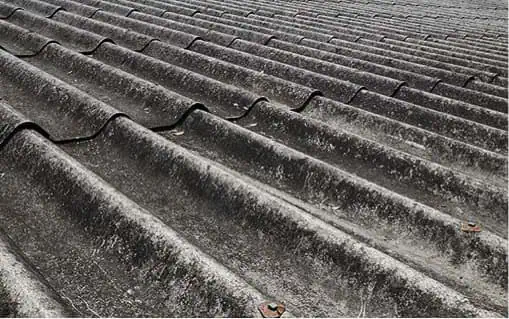
Concrete or Terracotta roof tiles are hung from the framework of a roof by fixing them with nails. The tiles are usually hung in parallel rows, with each row overlapping the row below it to exclude rainwater and to cover the nails that hold the row below. There are also roof tiles for special positions, particularly where the planes of the several pitches meet. They include ridge, hip and valley tiles. These can either be bedded and pointed in cement mortar or mechanically fixed.
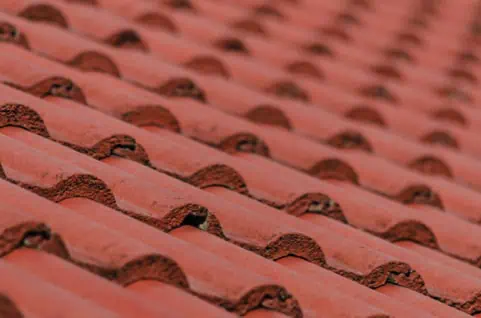
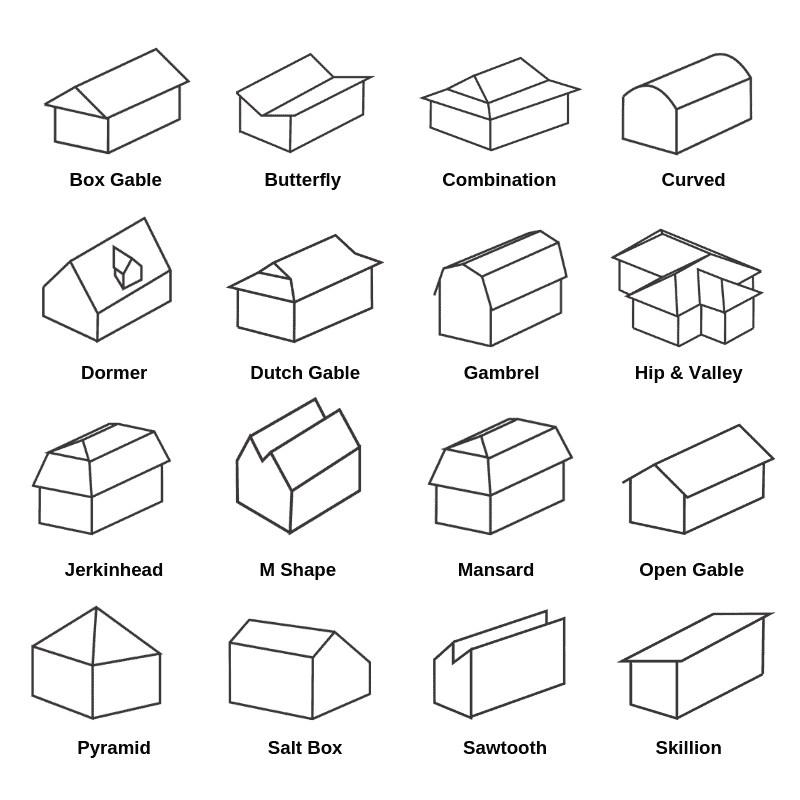
Australia has a wide variety of architecture, resulting in a range of different roof styles.
The most common roof styles:

As a highly-experienced, family-owned company – we provide expert metal roofing services throughout Brisbane and South-East Queensland.
Choose Vantage Point Roofing for a smooth, hassle-free experience because we put our customers first. Our professional team prides itself on a “no excuses” approach to customer service.
We hand pick the roofing industry’s best tradesmen. Our team are professional in their conduct and complete each job to the highest standard. Expert workmanship, paired with our exclusive use of Bluescope Steel, means our jobs are backed by industry-leading written guarantees.
Simply, we are the team you look to when you want it done right.

Get to know your roof
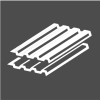
Which finish is right for you?

Does your roof have any of these problems?

Roof profiles and finishes

Learn about the hazards
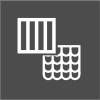
7 key factors

Help your roof last longer

Your questions answered

Our dedication to education